Hyvä Theme is Now Open Source: What This Means for Magento Community - Mageplaza
Hyvä is now Open Source and free. Discover what changed, what remains commercial, how it impacts the Magento ecosystem, and how to maximize its full potential.

Many artistic people enjoy making jewelry as a way to relax. But what if your jewelry starts getting attention? You might start thinking, “Could I turn this hobby into a business?”
Starting a jewelry business means grasping the ins and outs of the industry. One key thing to note: It’s on the rise. Predictions suggest the global jewelry market will grow by a whopping $46.3 billion between 2024 and 2028. This means there’s ample space for newcomers who can either find a unique niche or offer a fresh take on the craft.
If you’re interested in turning your creative passion into a source of income, keep reading. This guide offers insights from experienced jewelry designers who started from scratch, sharing their tips on how to kickstart your own jewelry business.
So, you’re considering starting your own online jewelry store. But why should you opt for Shopify instead of other ecommerce platforms like Magento, WooCommerce or WooCommerce alternatives?
Here are the benefits of choosing Shopify, specifically tailored for your jewelry business:
Easy Launch: Shopify makes creating your online jewelry store a breeze. With a range of ready-to-use themes available, whether you’re a tech pro or a novice, Shopify has everything you need to showcase your jewelry collection beautifully.
Cost-Effectiveness: While Shopify Plus caters to larger enterprises with premium features starting at $2,300 per month, you can set up a stunning and efficient jewelry store for as little as $25 per month if paid monthly. You can even save 25% with monthly paid plans as follows.
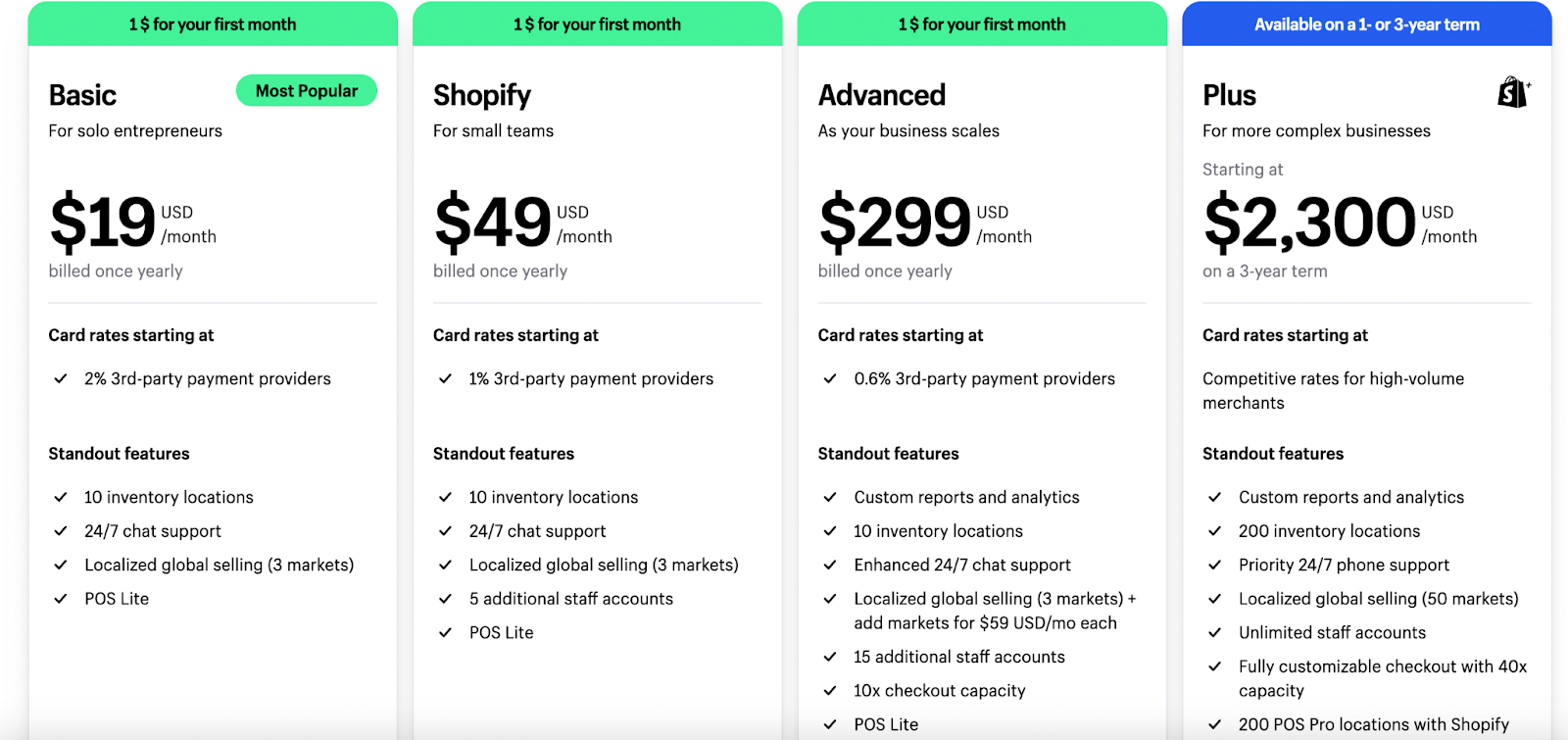
SEO Optimization: Increase the visibility of your jewelry store in search engine results with Shopify’s built-in SEO tools. With customizable title tags, meta descriptions, and URLs, Shopify helps you enhance your online presence and attract more potential customers. By implementing effective SEO strategies, your jewelry store can climb the search rankings and stand out from competitors.
Boundless Creativity: Unleash your creativity with Shopify’s extensive customization options. From designing your store to adding unique features, Shopify empowers you to craft a memorable shopping experience for your customers. With intuitive tools, bringing your brand vision to life is effortless.
Hassle-Free Hosting: Forget about the complexities of managing external hosting providers. With Shopify, your jewelry store benefits from reliable hosting on its servers, ensuring smooth performance and simplified management. By entrusting Shopify with your hosting needs, you can focus on growing your jewelry business without worrying about technical issues.
The jewelry industry spans from low-cost plastic beads to high-end precious metals and gems. When starting your own jewelry business, decide on the type of jewelry you’ll focus on:
Fine Jewelry:
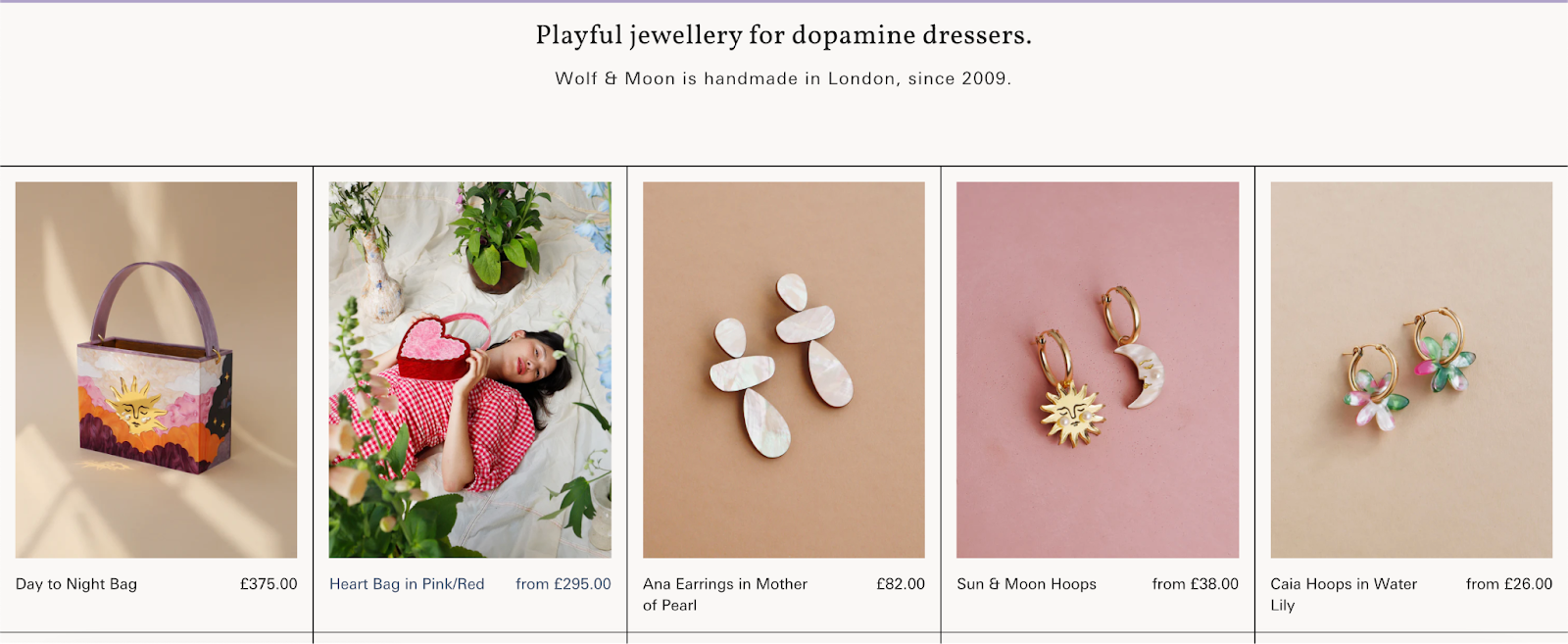
Fashion or Costume Jewelry:
Artist-Designed Jewelry:
Once you’ve chosen your focus, define your ideal customer and decide if your products are for special occasions or everyday wear. Then consider your product offerings, such as rings, necklaces, bracelets, earrings, and more.
Before diving into developing your brand and products, understanding your audience is crucial.
1. Following Jewelry Trends:
Keep an eye on current trends by reading fashion and jewelry blogs, following influencers, and checking out popular content on platforms like TikTok. Google Trends can also provide insights into global search volume. Consider exploring adjacent consumer trends like customization or sustainability.

2. Creating Your Own Trends: Instead of just following trends, consider using your jewelry business to set new ones.
3. Finding Inspiration Everywhere:
Building a successful brand relies on a strong aesthetic and consistent branding. Start by defining your signature style through exercises like creating Pinterest boards or digital mood boards.
You can also use jewelry design apps or traditional methods like bulletin boards or sketchbooks. Gather inspiration from nature, architecture, fashion, or travel, and identify recurring themes.
Successful jewelry businesses all share a common trait that is a strong brand foundation. It’s crucial to distinguish between brand and branding. Your brand encompasses your voice, mission, vision, and narrative, influencing how potential customers perceive your products.
Given the emotional nature of fashion purchases, emerging brands can foster connections by engaging customers on a personal level, even through elements as seemingly simple as a business name.
1. Crafting your brand narrative and defining your voice
Your brand guidelines serve as the backbone for your brand identity. This pivotal document encapsulates everything from your communication style and tone to your mission and values. It’s instrumental in maintaining consistency across your communications as your business expands.
Key strategies for jewelry brands:
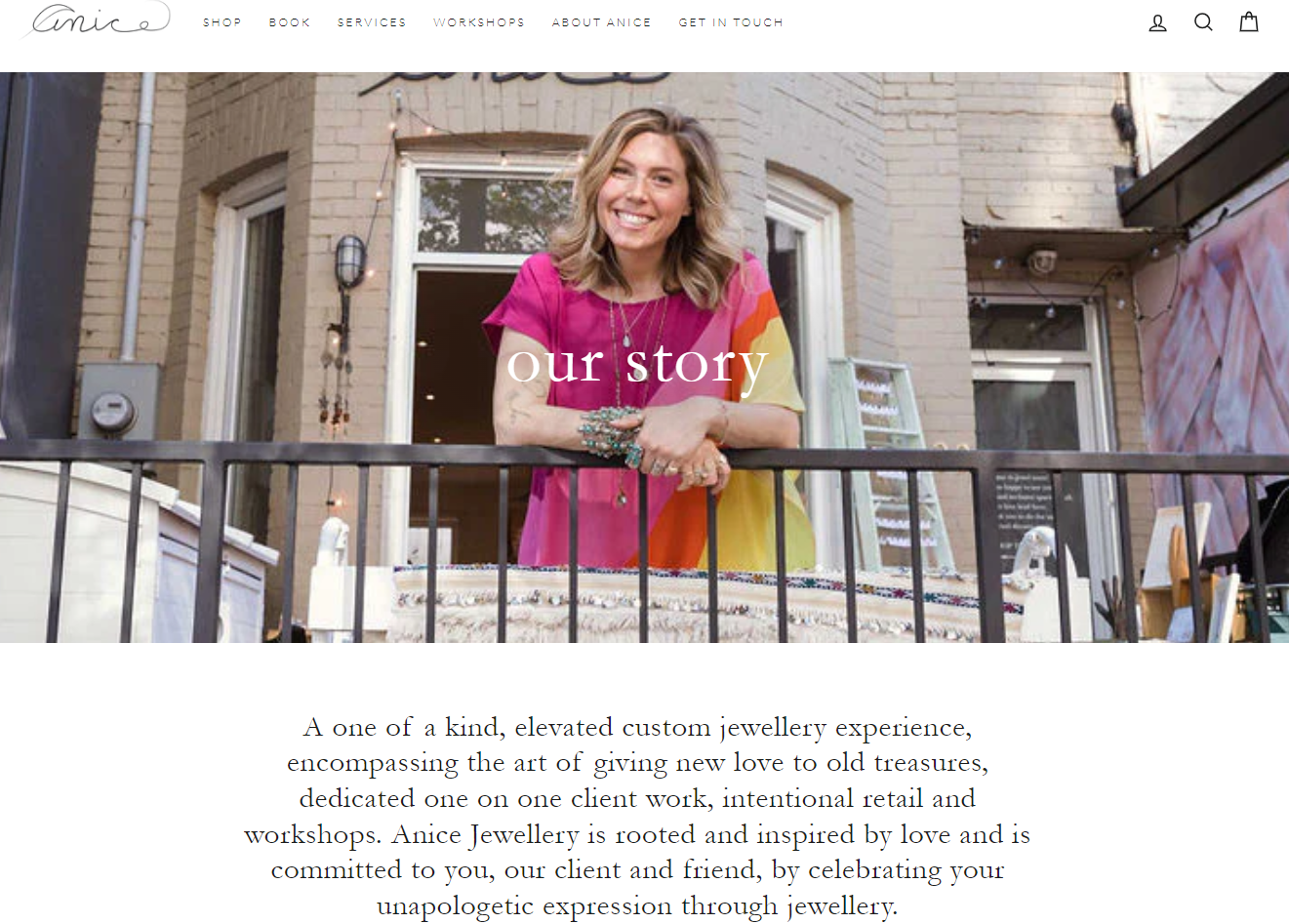
2. Packaging, logo, and brand identity
Branding encompasses the visual elements representing your brand: logo, packaging, business collateral, and website.
Once you’ve defined your product’s aesthetic, chosen a business name that resonates and understood your customer profile, defining a cohesive visual identity becomes more manageable. This step is essential, even for small businesses, so take the time to do it right.
Branding tasks for new jewelry business owners:
For those with larger budgets, collaborating with a designer can help translate your vision into a comprehensive branding package. Be sure to allocate funds for professional product photography.
3. Crafting a jewelry business plan
While not essential if you’re not seeking external funding initially, exploring business plan templates can help you clarify your goals, target audience, costs, and growth strategy. A well-crafted business plan can articulate your brand’s mission and values, aiding in attracting the right investors.
How you choose to develop your products, whether by hand or in a factory, at home, or outsourced, depends on various factors such as design complexity, price point, materials, and required skill level. In this section, we’ll explore five production and sourcing methods to start a jewelry business:
1. Handcrafted jewelry production Crafting unique jewelry pieces can be one of the most intricate yet adaptable production methods.
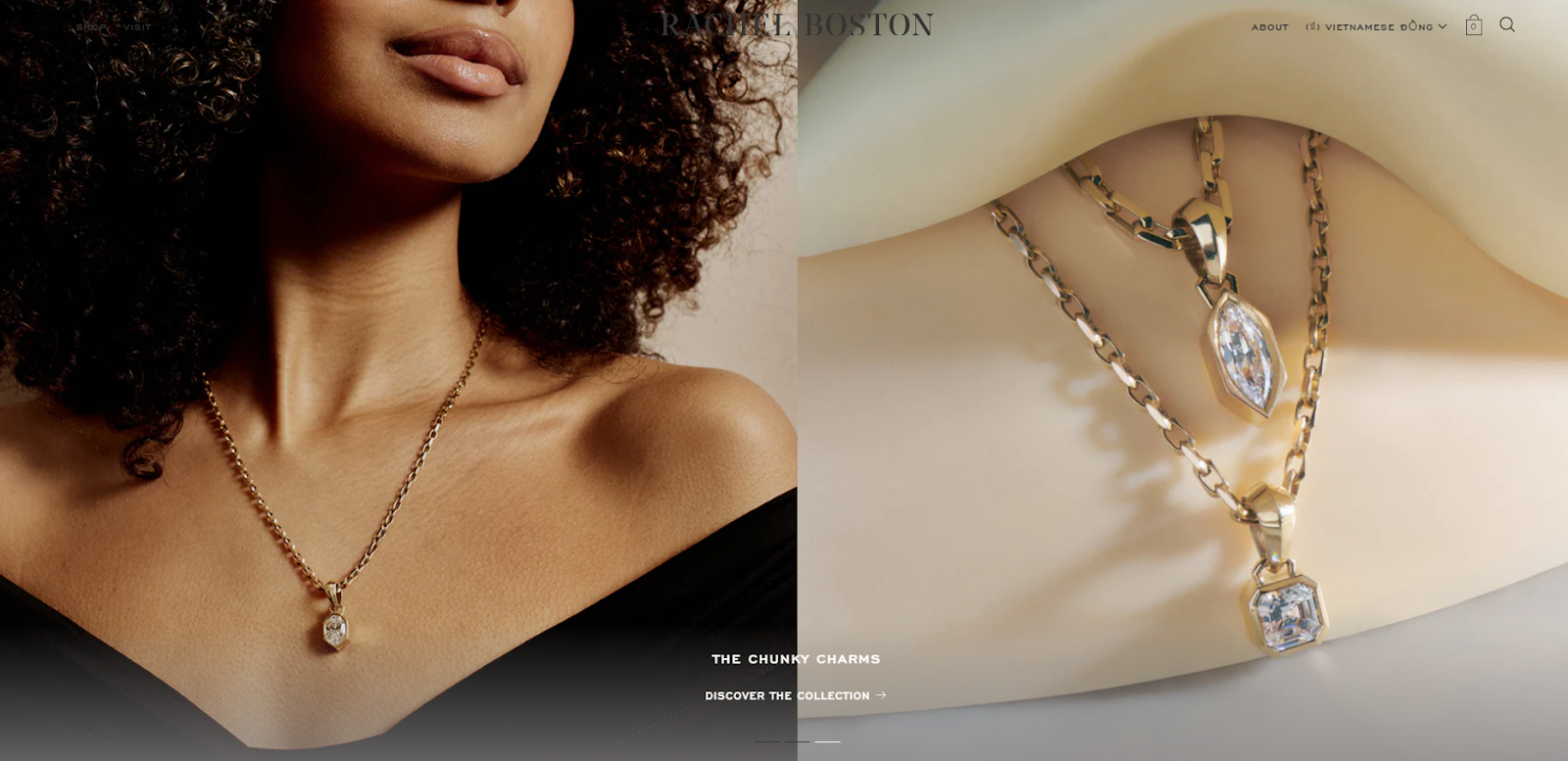
Depending on the materials and designs, certain methods of crafting bespoke jewelry may necessitate specialized training/certification and expensive equipment. You might need to familiarize yourself with techniques such as:
Starting with free online tutorials can be a practical approach to learning jewelry making. Later, you can progress to paid classes or seek apprenticeships under experienced artisans to broaden your skill set.
2. Handcrafted jewelry production: fashion and costume
Creating handmade costume jewelry often involves assembling existing elements such as chains, wires, beads, and cast pendants. This type of production typically doesn’t require specialized training or equipment beyond basic hand tools.
This business model is relatively easier to scale, as you can procure elements in bulk and establish templates for assembly, which can be executed by hired production staff.
If your passion lies in design and production rather than the physical act of making jewelry, consider outsourcing or hiring for other roles to facilitate scaling while allowing you to focus on the creative aspects.
3. Jewelry production: factory outsourcing
Instead of personally crafting the jewelry, you can have your designs manufactured by external parties. While this may not suit fine, custom, or one-of-a-kind jewelry, it can prove cost-effective for fashion jewelry produced in larger quantities. There are two primary options for outsourcing production to a jewelry manufacturer: local and overseas.
Local manufacturing offers the advantage of a “made local” appeal and facilitates easier relationship building and factory oversight. However, drawbacks may include higher costs, limited choices, and constraints on production volume.
Overseas manufacturing can be beneficial for cost reduction (particularly for high volumes) and offers a broader array of factory options. Challenges may include language barriers, reduced oversight, and fulfillment issues due to supply chain delays.
Accurate sketches or 3D renderings of your designs are essential when outsourcing to a manufacturer. Depending on your proficiency and budget, various options are available:
4. Jewelry production: print on demand
The most hands-off production method involves uploading your designs to a print-on-demand platform. Your original designs are then 3D printed or reproduced in materials like stainless steel, wood, plastic, gold, or silver, and shipped directly to your customers.
The Shopify App Store offers numerous companies capable of transforming your designs into various products, including jewelry, along with other items like mugs and t-shirts.
5. Jewelry curation: dropshipping and resale
If you lack creative skills but have a passion for jewelry, consider curating and reselling pieces from other designers in your online store. You can either maintain inventory and handle shipping yourself or opt for a dropshipping model.
With dropshipping, you eliminate the need to store inventory. Instead, products are sold through your online jewelry business, and orders are fulfilled directly by the vendor, streamlining your operations.
If you choose to produce your jewelry in-house, establishing a workshop space for yourself and your team is essential. Here are some considerations when setting up this space:
Maneuverability: Ensure the layout of the space allows for efficient movement, particularly if the assembly process involves multiple steps. Arrange workstations in a logical sequence to facilitate smooth workflow.
Safety: Take precautions to ensure the safety of yourself and your team. Some chemicals and tools used in jewelry making may require proper ventilation and safety measures. Familiarize yourself with local regulations governing the use of such substances and processes.
Storage: Invest in well-organized storage solutions, especially for small parts and tools. Multi-compartment storage units can help keep materials easily accessible and prevent clutter.
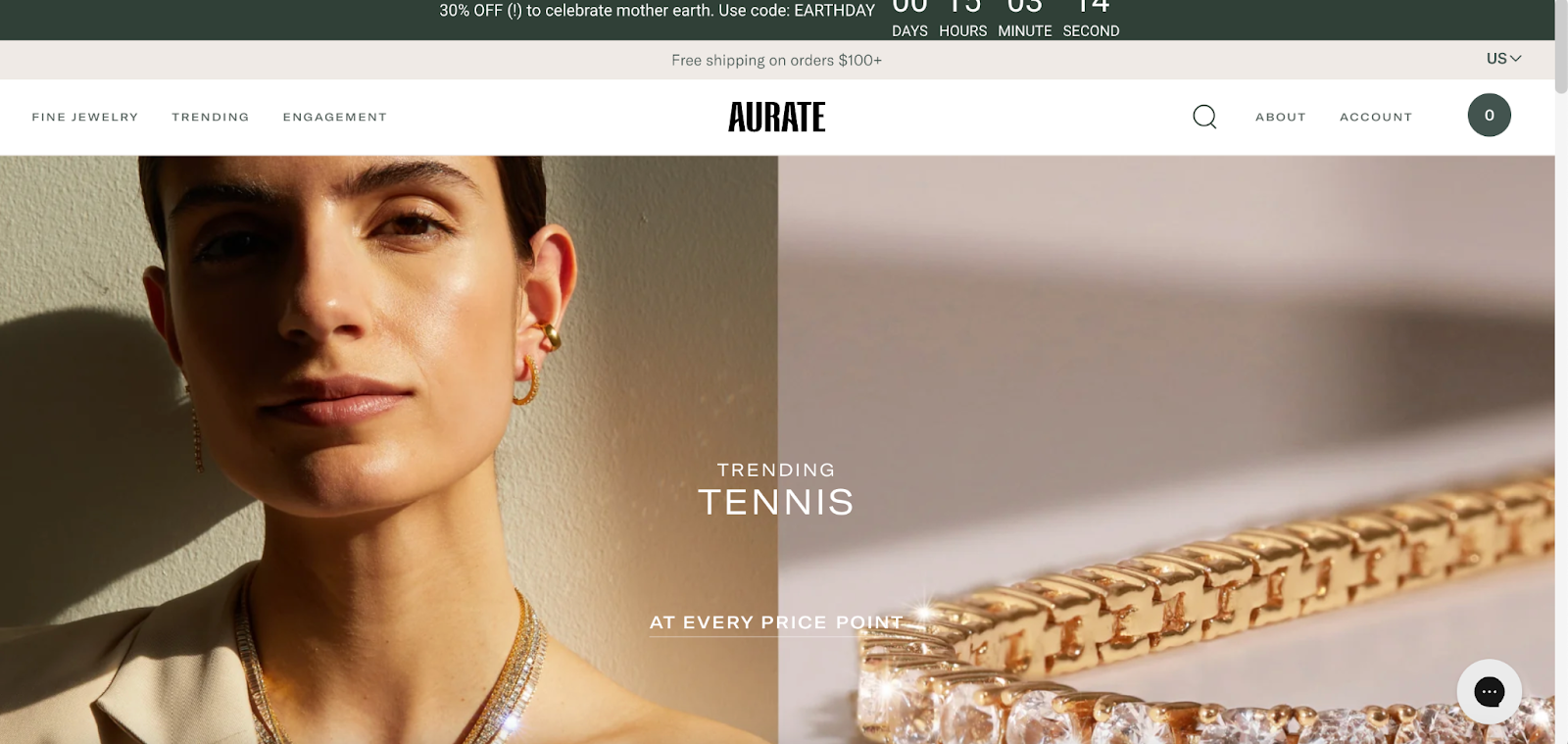
If your production team is larger or if your operations require more complex equipment, such as metalwork or silversmithing, consider renting commercial space outside of your home. If this is not feasible within your budget initially, explore options like co-op studio spaces where you can share costs and equipment with other creatives.
There are numerous online resources available for jewelry making, including wholesale suppliers for equipment, tools, and materials like precious gemstones and raw metals. Take advantage of these resources to stock up on everything you need for your jewelry production endeavors.
Product photography holds significant weight for online stores, particularly in the fashion industry, where it can truly make or break a brand’s image.
While achieving great DIY photos with a simple lighting setup is feasible for many products, jewelry presents unique challenges due to its intricate details and reflective surfaces.
Expanding your photoshoot team to include stylists, makeup artists, and assistants can enhance the overall quality of your images.
When it comes to hiring models, it doesn’t have to be cost-prohibitive. Many aspiring models are willing to collaborate in exchange for products or to build their portfolios. By pooling resources and talents, you can create compelling imagery together.
In your photo shoot, it’s crucial to provide various views and angles of your products, focusing on two main categories:
Product photos: These clear shots feature the product against a clean background, emphasizing its details and different angles. They contribute to a cohesive and clutter-free appearance on collection pages.
Lifestyle photos: These secondary shots typically feature the product on a model, providing a sense of scale and suggesting styling ideas to customers. They are effective for showcasing how the product looks when worn and can encourage upselling by demonstrating how multiple pieces can be styled together. These shots are suitable for product pages, lookbooks, and social media posts.
To reduce photography expenses further, consider partnering with complementary apparel brands to share costs or lending your jewelry pieces to fashion editors for photoshoots in exchange for product photos and exposure. Collaboration can be a mutually beneficial strategy for cost-effective marketing and brand building.
To launch your own jewelry line, you don’t need an expensive or complex website. You can set up a Shopify store using a free theme and customize it with your brand assets, fonts, and colors.
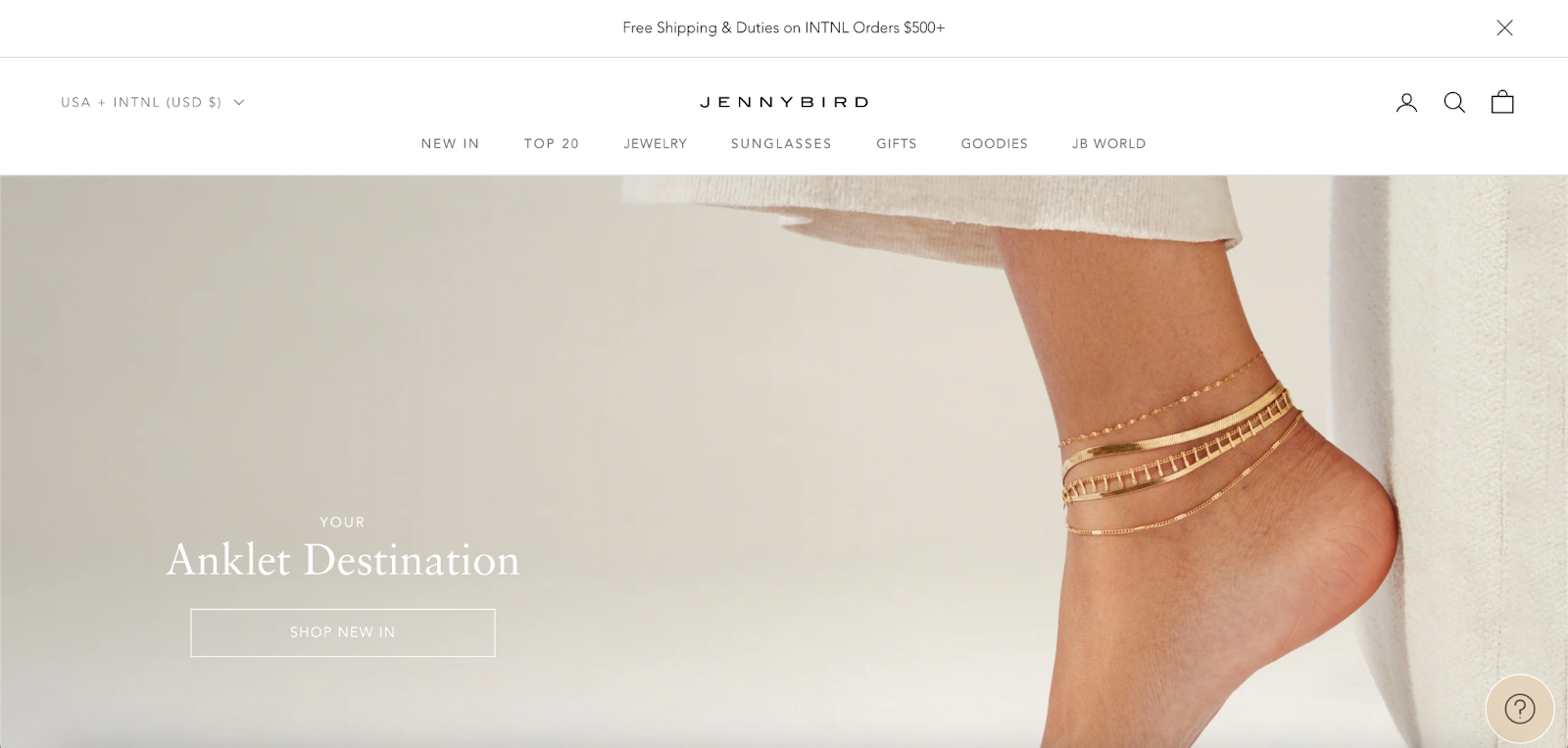
Choose a website template that showcases your jewelry photography prominently. Shopify offers clean themes designed to highlight products and brand identity, with customizable options accessible even if you’re not a designer or developer.
1. Essential pages and content for your store
Homepage: Use large lifestyle photos to captivate visitors, focusing on new and trending products and collections with a clear call-to-action (CTA).
Collection pages: Organize your products into collections by type, price point, material, or occasion for easy navigation.
Product pages: Provide essential information such as sizing, materials, and care instructions, accompanied by multiple photos to showcase every angle of the product.
FAQ, Contact, and About pages: These pages are vital for customer service and conveying your brand story.
Ensure that your website copy reflects your brand voice, evokes emotion, and provides detailed and helpful information. Product descriptions should seamlessly integrate your brand narrative while offering technical details.
2. Recommended apps for jewelry stores
For additional functionalities, consider integrating apps from the Shopify App Store tailored to jewelry businesses:
Loox - Photo Reviews & Photos: Collect and display customer photo reviews on your site to build trust and engagement.
Kiwi Size Chart & Recommender: Offer custom size charts to assist customers in making informed purchasing decisions, reducing returns and improving satisfaction.
Instagram Shop by Sauce: Create a shoppable gallery from your Instagram feed, leveraging social proof and user-generated content.
By combining a visually appealing website with user-friendly navigation and helpful apps, you can enhance the customer experience and drive conversions for your jewelry business.
The fashion and jewelry industries are oversaturated, making it challenging for your brand’s voice to be heard amidst the competition. Crafting an effective marketing strategy hinges on understanding your product, target audience, and budget, and it often involves experimentation to find what resonates. Customer acquisition remains a continuous priority for your brand, and here are several avenues to explore:
1. Utilize Social Media Marketing
Instead of bombarding followers with sales pitches, intersperse product-focused posts with inspirational content on various social media platforms. Tailor your approach to each platform’s unique characteristics; for instance, TikTok favors authentic, quirky short videos, while Instagram leans towards polished photo and video content.
While organic posts can still yield results, consider investing in paid social media campaigns to target your desired demographic and expand your reach.
2. Explore Collaborations and Influencer Marketing
Consider partnering with Instagram influencers, and exchanging products for dedicated posts. Prioritize strengthening your Instagram curation and hashtags to attract influencers whose values align with your brand.
Influencer marketing provides a valuable form of social proof that traditional advertising cannot replicate, particularly as younger consumers increasingly rely on social media creators for product recommendations.
Platforms like Shopify Collabs offer opportunities to connect with influencers interested in promoting your products. Additionally, collaborating with other brands through co-marketing promotions, joint events, giveaways, or product partnerships can amplify your brand’s reach and appeal.
3. Implement Public Relations Strategies
Embrace a diverse range of marketing strategies, including ecommerce SEO and email marketing, and analyze their effectiveness to determine what resonates best with your brand.
4. Engage in Pop-up Retail, Wholesale, and Artist Markets
Participating in local clothing shows, artist markets, or hosting events in your studio can provide valuable exposure and validate your brand’s concept. Such opportunities not only benefit emerging brands seeking to connect with established audiences but also offer established online businesses a chance to engage with customers in person.
For budding businesses, it’s prudent to begin by approaching local boutiques to showcase your designs. Gradually, as your brand grows, you can aim for collaborations with larger partners. Expanding into new markets presents another avenue for growth. Consider offering international shipping to tap into global markets and assess the potential demand for your products worldwide.
Additionally, diversifying your jewelry line with new products and collections can help broaden your appeal to a wider local audience, facilitating expansion and scalability.
Starting an online jewelry store takes effort, but it’s rewarding. Define your niche, set up a polished Shopify site, source quality inventory, and use influencer marketing. Ecommerce requires ongoing improvement based on trends and customer data.
Despite the competition, dedicated entrepreneurs can reach global audiences. Stay focused, prioritize customers, and embrace growth. With persistence, turn your dreams into a successful ecommerce venture.